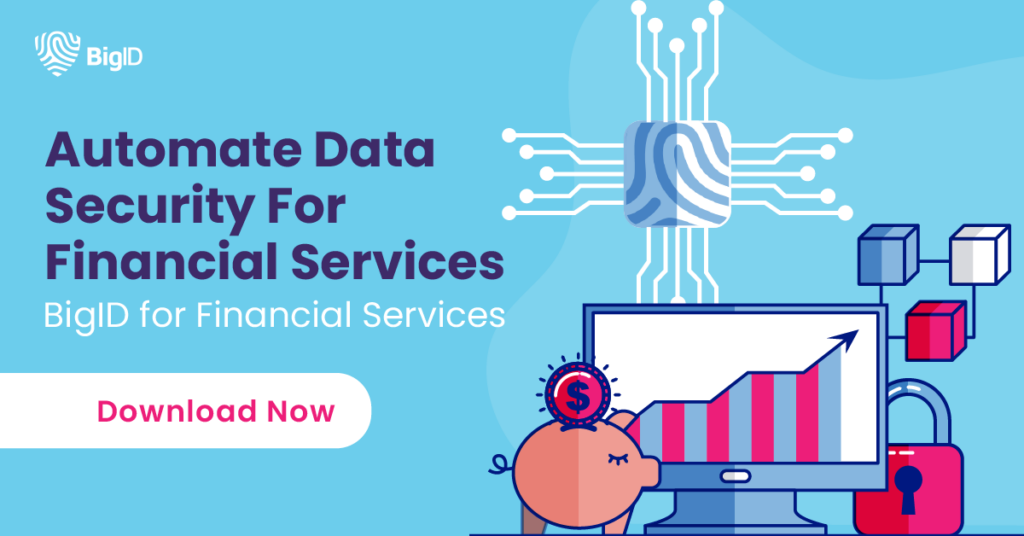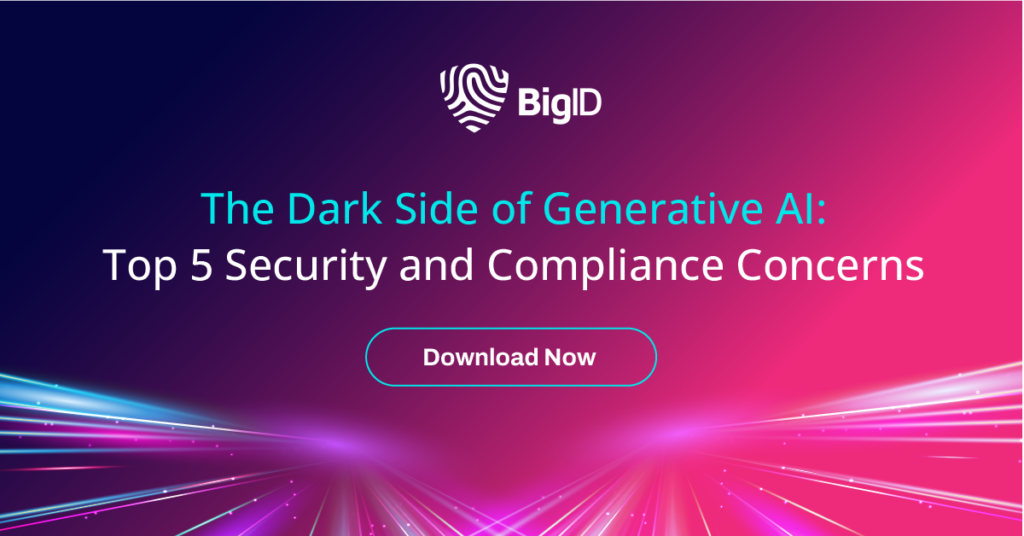In the ever-evolving landscape of financial services, the integration of Artificial Intelligence (AI) has become a game-changer, revolutionizing operations, customer experiences, and efficiency. However, as AI takes center stage in the financial sector, ensuring robust security measures is paramount. This blog delves into the rise of AI security in federal financial services, exploring its applications, regulatory landscape, key stakeholders, challenges, best practices, and the future of AI security.
The Rise of AI Security in Financial Services
The financial services industry is experiencing a seismic shift with the advent of Artificial Intelligence (AI), heralding a new era of innovation and efficiency. The applications of AI in this sector are both diverse and transformative. From fraud detection and risk assessment to customer service automation and investment strategies— AI is reshaping traditional practices and unlocking unprecedented possibilities. The adoption of financial AI brings about tangible benefits and efficiencies, streamlines traditional processes, enhances customer experiences, and optimizes decision-making.
However, as AI becomes more integral to the fabric of financial operations, the increased need for robust security measures becomes undeniable. The immense power and interconnectedness of AI systems make them attractive targets for malicious actors— for this reason a proactive approach to protecting sensitive financial data is indispensable. As financial institutions embrace the opportunities presented by AI, they must simultaneously fortify their security postures to ensure the integrity, confidentiality, and availability of critical information in this rapidly evolving landscape. The rise of AI security is not just a response to emerging threats— it is a strategic imperative for fostering trust, resilience, and sustainable innovation in the financial services sector.

AI Security Federal Regulations and Compliance
In the dynamic realm of financial services, the integration of Artificial Intelligence (AI) is met with the necessity to navigate a complex landscape of federal regulations and compliance standards. Understanding and adhering to these regulations are crucial for ensuring the ethical and secure deployment of AI in financial operations. Federal oversight plays a pivotal role in shaping the ethical use of AI in financial services. Regulatory bodies provide a framework to mitigate risks and protect consumers. Key regulations include guidelines on transparency, accountability, and fairness in AI systems. Navigating this regulatory landscape demands a comprehensive understanding of evolving policies.
The General Data Protection Regulation (GDPR) stands as a prominent international standard, influencing how financial institutions handle customer data. GDPR places a strong emphasis on transparency, requiring organizations to clearly communicate how AI systems process and utilize personal information. Ensuring compliance with GDPR safeguards customer privacy and instills trust in AI-driven financial services.
The Dodd-Frank Wall Street Reform and Consumer Protection Act addresses various aspects of financial regulation. When it comes to AI, the Act’s implications extend to risk management and mitigation. AI systems employed for risk assessment and decision-making must align with the stipulations of Dodd-Frank to maintain financial stability and protect consumers.
AI’s role in detecting and preventing money laundering is pivotal for financial institutions. Compliance with AML regulations is not only a legal requirement but also an ethical imperative. AI technologies can enhance the effectiveness of AML efforts by analyzing vast datasets and identifying suspicious patterns, ensuring financial institutions stay ahead of evolving threats.
In navigating this intricate regulatory landscape, financial organizations must stay up to date, actively engage with regulatory bodies, and implement AI solutions that align with the ethical considerations outlined in these key regulations. This approach not only fosters compliance but also positions financial institutions as responsible stewards of AI in the pursuit of innovative, secure, and ethically sound financial services.
Stakeholders in AI Security
Within the financial industry and AI, various stakeholders hold key roles, each contributing to the harmony or discord of the sector’s security posture. At the forefront of this narrative are financial institutions, where the adoption of AI technologies is transformative. Banks and financial organizations leverage AI for fraud detection, risk assessment, customer service, and beyond. However, with this technological prowess comes heightened responsibilities and challenges.
Financial institutions bear the responsibility of safeguarding sensitive data and maintaining the integrity of financial transactions. The challenges are multifaceted, ranging from ensuring the ethical use of AI algorithms to countering evolving cyber threats. Striking a balance between innovation and security is a perpetual challenge faced by these institutions.
The urgency of AI security is starkly highlighted by real-world examples, where security breaches in financial services have had profound consequences. These case studies stand as cautionary tales, underscoring the critical importance of implementing robust cybersecurity measures.
For instance, the Equifax data breach in 2017, one of the largest and most impactful breaches in the financial sector, exposed sensitive personal information of millions of consumers. This incident emphasized the need for enhanced data protection and spurred regulatory scrutiny. Similarly, the Bangladesh Bank heist in 2016 demonstrated the susceptibility of financial institutions to cyber-attacks, as hackers exploited vulnerabilities in the bank’s security systems to orchestrate a large-scale financial theft. Such incidents not only reveal vulnerabilities but also serve as catalysts for change, compelling financial institutions to learn from past mistakes, invest in cutting-edge security technologies, and fortify their defenses against an evolving threat landscape.
Enter government agencies and regulatory bodies, playing a crucial role in shaping the AI security landscape. These entities establish guidelines, standards, and frameworks to ensure responsible AI adoption. Their involvement is pivotal in maintaining the ethical use of AI and preserving consumer trust. In a symbiotic relationship, financial institutions collaborate with regulators to navigate the evolving challenges of AI security. Open communication channels facilitate the sharing of insights, concerns, and best practices. This collaboration aims to create a regulatory environment that fosters innovation while mitigating risks.
Regulators hold the reins in setting and enforcing AI security standards. Their role extends beyond rule-making— regulators act as guardians of ethical AI practices. Regulators contribute to the development of standards that strike a balance between innovation and risk mitigation by actively participating in industry dialogues.
Challenges in AI Security
Like any other rapidly evolving and dynamic landscape— AI-driven financial services are subject to a myriad of challenges— each demanding careful consideration and strategic solutions to fortify the security infrastructure. This section explores the multifaceted challenges in AI security, encompassing emerging threats, cybersecurity risks, adversarial attacks on AI models, and ethical considerations crucial for the responsible deployment of AI.
- Emerging Threats in the Financial Sector: The financial sector is a prime target for emerging threats that constantly evolve in sophistication. From advanced malware to ransomware attacks, financial institutions face an ever-expanding threat landscape. The integration of AI introduces new vectors of vulnerability, requiring proactive measures to identify and mitigate emerging threats in real-time.
- Cybersecurity Risks: As financial organizations embrace AI technologies for enhanced decision-making and operational efficiency, the amplification of cybersecurity risks is inevitable. Sophisticated cyber-attacks, including data breaches and system intrusions, pose substantial threats. Addressing these risks involves adopting robust cybersecurity measures that not only protect sensitive data but also fortify the AI infrastructure against malicious intent.
- Adversarial Attacks on AI Models: AI models, particularly those employed in financial applications, are susceptible to adversarial attacks. Adversaries may manipulate input data to deceive the AI, leading to inaccurate outputs. This poses a significant risk in financial decision-making processes. Implementing mechanisms to detect and thwart adversarial attacks is imperative to maintain the integrity and reliability of AI-driven systems.
- Ethical Considerations in AI Security: Ethical considerations play a pivotal role in the responsible use of AI in the financial sector. The ethical implications of AI-powered decision-making, especially in areas like lending and investment, necessitate careful scrutiny. Financial institutions must grapple with questions of fairness, accountability, and the societal impact of their AI applications.
- Bias and Fairness Issues: AI algorithms can inadvertently perpetuate biases present in historical data, leading to unfair outcomes. Recognizing and mitigating bias is essential to ensure that AI applications in finance do not inadvertently discriminate against certain individuals or communities. Striking a balance between algorithmic efficiency and fairness is an ongoing challenge.
- Transparency and Explainability in AI Decision-Making: Maintaining transparency and explainability in AI decision-making processes is a critical aspect of building trust. Financial institutions must ensure that the decisions made by AI models are understandable and traceable. This not only aids in regulatory compliance but also fosters user trust and confidence.

Best Practices for AI Security in Financial Services
Navigating these intricate challenges requires a holistic approach that combines technological advancements, ethical frameworks, and regulatory compliance. Some best practices organizations can implement include:
- Applying Robust Cybersecurity Measures: In the rapidly evolving landscape of financial services powered by Artificial Intelligence (AI), the implementation of robust cybersecurity measures is paramount. Financial institutions must invest in cutting-edge cybersecurity technologies and protocols to safeguard AI systems from evolving threats. This includes deploying advanced firewalls, intrusion detection systems, and regularly updating security protocols to stay resilient against cyber threats.
- Encryption and Secure Data Transmission: Ensuring secure data transmission is a cornerstone of AI security in financial services. Robust encryption mechanisms must be in place to protect sensitive financial data as it traverses networks. Encryption algorithms, secure sockets layer (SSL) protocols, and advanced cryptographic techniques play a crucial role in fortifying the confidentiality and integrity of data during transit.
- Continuous Monitoring and Threat Detection: AI security is an ongoing commitment that necessitates continuous monitoring and proactive threat detection. Financial institutions should leverage AI-driven monitoring tools that can identify anomalies, potential breaches, and suspicious activities in real time. This proactive approach allows for swift responses to emerging threats, reducing the risk of financial data compromise.
- Ethical AI Considerations: Embedding ethical considerations into the development and deployment of AI in financial services is not just a best practice; it’s an ethical imperative. Financial institutions should establish guidelines and frameworks that prioritize fairness, transparency, and accountability in AI decision-making processes. Ethical AI frameworks foster trust among consumers and ensure responsible and unbiased use of AI technologies.
- Incorporating Fairness and Bias Mitigation Techniques: Addressing biases in AI algorithms is crucial for upholding fairness in financial services. Financial institutions must incorporate mitigation techniques to identify and rectify biases in AI models, ensuring that decision-making processes are impartial and free from discriminatory outcomes. This includes regular audits of AI systems and the use of diverse datasets to train models.
- Transparent Communication with Stakeholders: Transparent communication with stakeholders is a foundational element of AI security in financial services. Financial institutions must keep stakeholders, including customers, regulators, and employees, informed about the use of AI, its capabilities, and the measures in place to ensure security and ethical considerations. Transparent communication builds trust and establishes a collaborative environment for responsible AI implementation.
Adhering to these best practices establishes a robust foundation for AI security in financial services, fostering innovation while prioritizing data protection, ethical considerations, and transparent communication with all stakeholders. Financial institutions can navigate the dynamic landscape of AI-driven finance with confidence and responsibility by incorporating these practices into their AI strategies.
The Future of AI Security in Financial Services
As we navigate the ever-evolving landscape of financial services, the future of AI security is marked by profound shifts, driven by technological advancements, collaborative efforts among financial institutions, and the imperative to anticipate and adapt to evolving threats.
The trajectory of AI security is intrinsically tied to technological innovations. Advancements in machine learning algorithms, encryption techniques, and anomaly detection capabilities are poised to redefine how financial institutions safeguard their operations. The integration of quantum-resistant cryptography and federated learning models holds promise in enhancing the resilience of AI systems against emerging threats.
The future demands a proactive stance in anticipating and adapting to evolving threats. Threat landscapes are dynamic, and financial institutions must implement adaptive AI security strategies. Predictive analytics, coupled with real-time threat intelligence, will empower organizations to identify potential risks before they materialize. This anticipatory approach ensures a resilient defense against novel and sophisticated cyber threats.
As we embark on this transformative journey, financial institutions must not only invest in cutting-edge technologies but also foster a culture of collaboration and adaptability. The future of AI security in financial services hinges on the industry’s collective ability to embrace innovation, share insights, and stay one step ahead of those who seek to exploit vulnerabilities. In doing so, we pave the way for a secure, resilient, and technologically advanced future in financial AI.
Securing Sensitive Financial Data With BigID
BigID is the industry leading platform for data privacy, security, and governance that enables organizations to identify, classify and know their data at scale— in both structured and unstructured forms regardless of whether it is in the cloud or on-prem.
- Cloud migration: In order to balance compliance, privacy, security, risk, and cost and efficiency concerns, execute a strategic cloud migration initiative. With BigID, financial institutions can map, monitor, and inventory sensitive data before it’s migrated to the cloud, uncover data quality issues, identify duplicate data, highlight overexposed data, and apply labels based on classification output for automated enforcement in the cloud.
- Protect sensitive and regulated data: Proactively protect sensitive, personal, regulated, and critical data — from legacy stores to cloud environments. With BigID, financial institutions get visibility and complete coverage of their sensitive, regulated, and high-risk data. BigID empowers organizations to uncover dark data, manage risk, automate and enforce security policy, and align a security-by-design approach.
- Improve data quality: BigID enables organizations to improve their data quality, providing insights within business context. Actively monitor the consistency, accuracy, completeness, and validity of your data — and know if it is fit for purpose and privacy compliant. Evaluate data quality based on data profiling results, and get results automatically in a unified catalog view — no queries required.
To see how BigID can help elevate your financial services organization AI, privacy, or security initiatives— schedule a 1:1 demo with our experts today.



